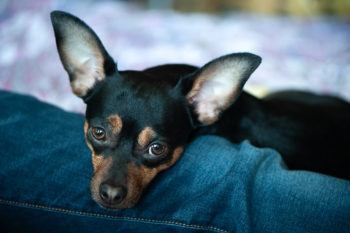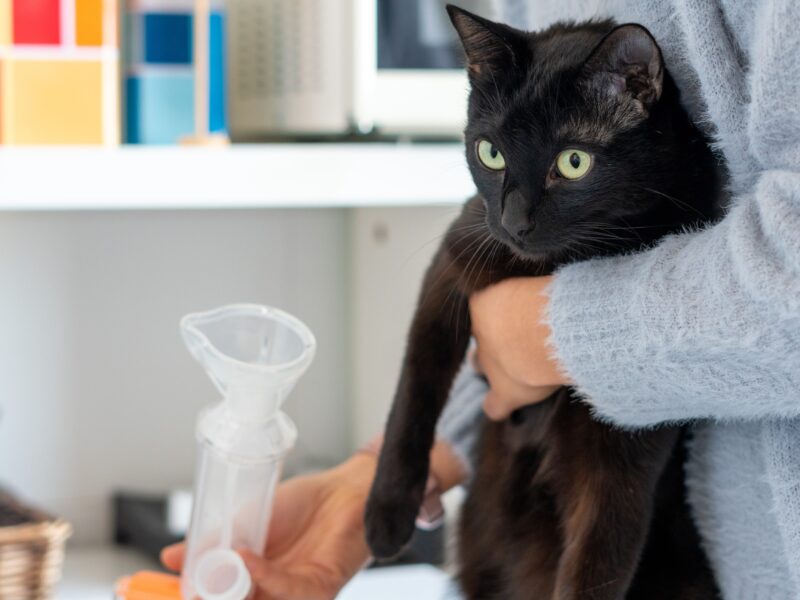Does Your Dog Have Separation Anxiety?
Does your dog whine when he sees you heading for the door? Are shredded pillows a frequent welcome home from work? Does your otherwise housetrained pooch have a problem with accidents in your absence?
If so, your dog might have a case of separation anxiety.
Kit Darling, infection control coordinator at the Texas A&M College of Veterinary Medicine & Biomedical Sciences, says canine separation anxiety is a condition born from love.
“Since dogs have been domesticated over thousands of years, there has been the development of a bond between dogs and people,” Darling said. “Dogs are social animals and thrive on companionship. They would like to spend all of their time with you if they could.”
Separation anxiety arises when a dog becomes stressed and anxious in the absence of their owner. Oftentimes, this distress manifests in symptoms that mimic misbehavior.
“Signs of separation anxiety include excess whining, barking, or howling; having accidents, even though housebroken; chewing things; scratching at doors and windows; digging holes; excessive drooling and panting; pacing; and trying to escape,” Darling said.
While there are many theories on why dogs develop separation anxiety, the exact cause can be difficult to pinpoint.
“Risk factors include coming from a shelter, being left alone or seldom left alone as a young puppy, change of ownership, change in family routine or schedule, experiencing a traumatic event when the dog is alone, moving to a new house, and loss of a family member,” Darling said.
When managing canine separation anxiety, a kind and patient approach is best.
“Do not scold or punish your dog because it might make the dog more upset and fearful,” Darling said. “The behaviors exhibited in separation anxiety are not the result of disobedience or spite.
“If your dog has mild separation anxiety, counter-condition training may be helpful. This is done by associating the sight or presence of the feared or disliked situation with something the dog really likes,” she continued. “Over time, the dog will learn something feared will predict something good.”
Distraction can also be a valuable tool, as a tired dog has less energy available for destructive activities. Darling suggests food puzzles, aerobic exercise, interactive games, daily walks, and playdates with other dogs to keep your dog busy.
“Each dog is different so you have to find out what motivates him and sets him up to be successful,” Darling said. “Providing lots of physical exercise and mental stimulation decreases your dog’s stress and enriches his life.”
Pet Talk is a service of the College of Veterinary Medicine & Biomedical Sciences, Texas A&M University. Stories can be found on the Pet Talk website. Suggestions for future topics may be directed to editor@cvm.tamu.edu.






